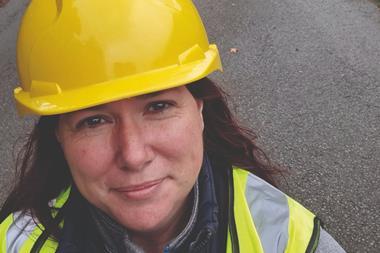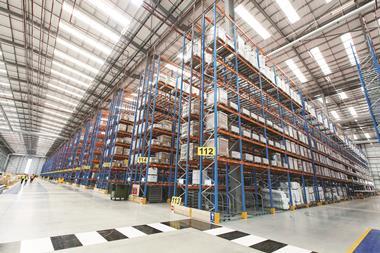The more you spend, the less value you obtain. Several housebuilders have learned that the hard way in the past couple of decades. Somebody should tell that to Chelsea FC’s American co-owner.

US businessman Todd Boehly and partners bought the west London club from Russian owner Roman Abramovich last May. The club then splurged £500m or so in the past two transfer windows on a small galaxy of players, most of whom, arguably, weren’t needed, have subsequently failed to shine and, most critically, did not include the one position the Blues desperately did need: a striker.
Cue one of Chelsea’s worst-ever goal droughts. Poor Graham Potter. The thoroughly decent and, until he arrived at Stamford Bridge, hugely successful former Brighton manager looked simply out of his depth corralling his loosely assembled prima donnas. “You don’t know what you’re doing,” brayed the more vitriolic fans. A bit unfair: the true ingénue was surely the new owner?
Boehly, with no apparent history in soccer ownership, in September 2022 sacked manager Thomas Tuchel, who the previous year won the Champions League. Ahead of Chelsea’s 2-0 drubbing this month by Real Madrid in the Champions League quarter-final away leg, in a mark of Boehly’s overconfidence, he predicted a 3-0 win.
In a battling performance in the home leg, led by the ‘old guard’, 19 shots on goal failed to find the net, while errors by the ‘newbies’ allowed Rodrygo to twice convert from far fewer chances.
In a particular irony, Chelsea were humiliated home and away this season against Potter’s far more frugal former employers. A valuable lesson either for owners of football clubs or management at housebuilders – or, indeed, just about any other business – is that until you absolutely do know what you’re doing… hide the chequebook.
Land-buying spree
It recalls the largesse exhibited by some of the largest housebuilders ahead of the global financial crisis. Among them was Barratt Developments, which, from 2006 under a new upper management team without housebuilding experience, expanded ambitiously and with a previously unknown taste for debt at Britain’s largest housebuilder.
This was first seen in land-buying. The rationale was that as long as house prices went up, a plot of land bought then would result in a higher-than-budgeted profit than when the home was eventually built. And buying lots more land would mean lots more profit. Management was asked at a financial results meeting about the relative importance of margins versus return on capital employed, which takes into account debt levels. This elicited, as I recall, a glib response implying that supposed future margins had more priority than what had always been Barratt’s sacrosanct metric and that the company’s gearing was lower than in other industries.

This thinking appeared to be a green light for Barratt’s land-buyers. It wasn’t alone. Various rivals, including future merger partners Taylor Woodrow and Wimpey, Redrow and smaller groups joined a land-buying spree – much of it for speculative apartment blocks. The equivalent, perhaps, of Chelsea outbidding Arsenal to pay £89m for Ukrainian winger Mykhaylo Mudryk – who has spent a mere 360 minutes on the pitch in the past 10 Premiership matches and was awful against Madrid at the Bridge.
Meanwhile, in 2007, Barratt bought rival Wilson Bowden for almost double the value of its net assets, amid an industry-wide acquisition binge before the final whistle was blown by the implosion of Lehman Brothers in 2008. Many housebuilders were forced to write down swathes of their new sites, while banks took control of numerous developers, heavily rationing their land-buying.
Not everyone was swept along: Berkeley Group refused to match the prices being proffered by previously unknown rivals flooding into the London market and built up a formidable cash pile. The sites it subsequently bought at fractions of those prices supported several years of eye-wateringly high-margin developments.
Barratt, Taylor Wimpey et al are all now run in a spirit of ‘financial fair play’, with debt (at least at fiscal year-ends) now anathema. They buy only enough sites to top up the tank and return ‘excess cash’ to shareholders via special dividends or buybacks – a debatable approach but, arguably, better than paying top whack for land. And more in Brighton & Hove Albion’s league, perhaps, than Chelsea’s.
Alastair Stewart is an equities analyst and consultant
































No comments yet